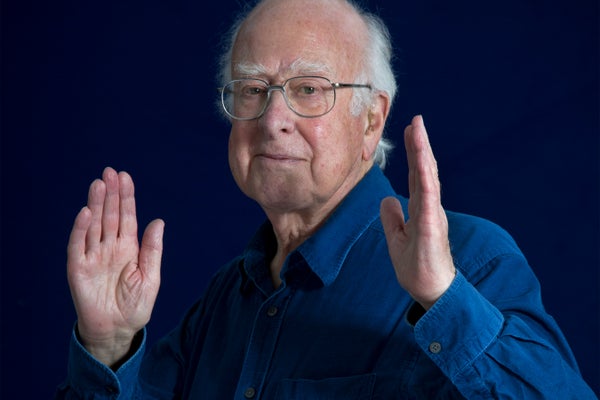Peter Higgs, a Giant of Particle Physics, Dies at 94
The Nobel Prize-winning theorist’s prediction of the Higgs boson sparked a half-century quest of discovery that reshaped physics—and our understanding of the universe
Colleagues remember Peter Higgs as an inspirational scientist, who remained humble despite his fame.
Colin McPherson/Corbis via Getty Images
Few scientists have enjoyed as much fame in recent years as British theoretical physicist Peter Higgs, the namesake of the boson that was discovered in 2012, who died on 8 April, aged 94.
It was 60 years ago when Higgs first suggested how an elementary particle of unusual properties could pervade the universe in the form of an invisible field, giving other elementary particles their masses. Several other physicists independently thought of this mechanism around the same time, including François Englert, now at the Free University of Brussels. The particle was a crucial element of the theoretical edifice that physicists were building in those years, which later became known as the standard model of particles and fields.
Two separate experiments at the Large Hadron Collider (LHC) near Geneva, Switzerland — ATLAS and the CMS — confirmed Higgs’ predictions when they announced the discovery of the Higgs boson half a century later. It was the last missing component of the standard model, and Higgs and Englert shared a Nobel Prize in 2013 for predicting its existence. Physicists at the LHC continue to learn about the properties of the Higgs boson, but some researchers say that only a dedicated collider that can produce the particle in copious amounts — dubbed a ‘Higgs factory’ — will enable them to gain a profound understanding of its role.
On supporting science journalism
If you’re enjoying this article, consider supporting our award-winning journalism by subscribing. By purchasing a subscription you are helping to ensure the future of impactful stories about the…
Read the full article here







